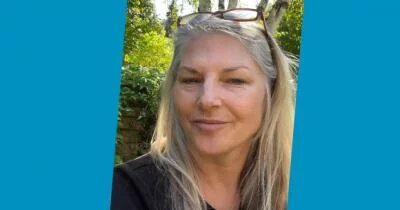
Wednesday, October 06, 2021
Samara Carroll, Labour Relations Specialist and one of the staff supports for the union’s equity caucuses, recently sat down with Elizabeth Janz, Chair of the Disability Caucus, for a question-and-answer session on how she became involved in the union, what the Caucus does, and priorities for the coming year.
SC: Hi Elizabeth! Let’s start off today by telling us a little more about yourself! How did you become involved with AMAPCEO?
EJ: Sure! While I have had a long career with the Ontario Public Service (OPS), I have only been a member of AMAPCEO since 2016. I am no stranger to unions though, having been a proud union member intermittently throughout my work with the OPS. In all honesty, I first became actively involved in AMAPCEO after I reached out to the union when I was having difficulty getting proper, timely, and effective accommodation from my employer.
I was fortunate that the Workplace Representative (WPR) I worked with was very knowledgeable and clearly had a genuine interest in supporting me. I credit that WPR with making me feel confident that my union was really there for me. It was seeing her personal dedication to making a difference that inspired me to became involved in the union through the Disability Caucus.
SC: It’s so great how one member’s engagement can inspire another’s. On that note, I was wondering if you could tell me more about the Disability Caucus.
EJ: That’s an important question. The Disability Caucus is a member-to-member committee that is open to all members of AMAPCEO. We provide a safe and non-judgemental space for members to share experiences, outcomes, and ideas that help could help Caucus members or the broader AMAPCEO community. As a disability affects a whole family, the Caucus may be of interest whether you are dealing with a disability yourself, or because of someone you care about has a disability that impacts you in the workplace.
The Disability Caucus also offers feedback and advice to AMAPCEO on range of issues. For example, the Caucus proposes activities, such as educational or information sharing events, to sponsor. It also actively advocates for things AMAPCEO as an organization can do to support our members. One recent recommendation was for AMAPCEO to ensure staff are trained on accommodations options to better support members with disabilities prepare their accommodations plans and bring their best to the workplace.
SC: That’s such a good rundown of what the Disability Caucus does. Can you tell me a little more about the past year specifically? How have you adapted during the pandemic? What’s new this year?
EJ: COVID-19 is obviously of concern to many of the Disability Caucus members, especially those with compromised health. But the thing about our Caucus members is that many of them had already learned to be adaptable throughout their careers. So while the pandemic was another hurdle for all of us, at least those with disabilities had equal access to the alternative work arrangements provided by the employer across the OPS. Now the Caucus have asked AMAPCEO to ensure our members are safe as we prepare to return to the workplace in the coming months.
In terms of what’s new, I am a relative newcomer to the Caucus myself, so I can probably better tell you what we are focusing on right now.
Throughout the last few monthly Caucus discussions, we created a running list of Caucus Deliverables/Goals based on ideas from our members. From this list, five priorities have been identified for the Caucus for this year:
- Safe space sessions
- Additional training for Disability Specialists and Workplace Representatives
- Support for Ontario Human Rights Code (OHRC) Sessions
- Determining advice for AMAPCEO/Employer interactions such as the Multi-Year Accessibility Plan (MYAP) and Collective Agreement
- Outreach and communication
While we are focussing on the above priorities, we continue to review the goals we have identified as well as build upon ideas generated by the Caucus. It provides a good start when looking at new priorities to take on in future years.
This month also marks the first of our Fireside Chats, in honour of World Mental Health Day. I hope to see our Caucus members there!
SC: Sounds like a very good start, and also a full plate for you! Before we go, can you tell us what fills your time outside of work?
EJ: As a mother, much of my time outside of work is spent with my family.
My illness has been difficult for all of us. I am thankful to my husband and my kids for stepping up where I could not: my husband’s support was essential to help me continue as I struggled in the work environment. I was overwhelmed, having to prove my worth, as well as dealing with negative attitudes and ongoing marginalization in the workplace.
For years, I had been dealing with an employer who refused to work with me and my medical doctor on an accommodation plan. The workplace became both an emotionally and physically difficult place to be for me. Fighting for accommodation was also costly, limiting professional growth and development for me in the workplace.
Reaching out to AMAPCEO made a difference. With AMAPCEO’s support, we finally succeeded in getting a plan in place that worked for myself and the employer. Even with AMAPCEO’s involvement, this was difficult journey, requiring wherewithal, commitment, and my personal support network to see me through the process.
Now that the accommodations are in place, I have been able to better balance my life outside work while bringing my best self to the workplace. Since being accommodated, I have joined a book club, volunteered at my kids’ schools, and been able to focus on my personal health and wellness. My family has certainly noticed the positive changes in my emotional and physical wellbeing since being accommodated in the workplace.